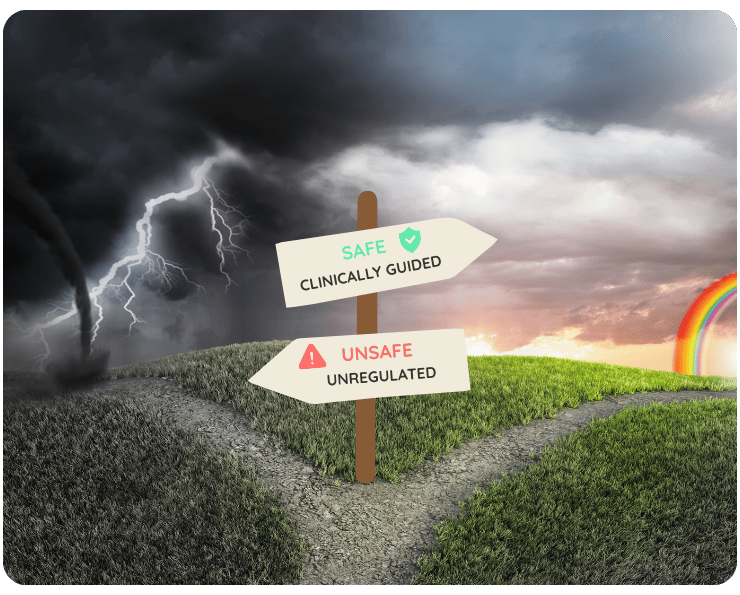In a recent episode of the Shifting Schools podcast, Dr. Elsa Friis, licensed psychologist and Head of Product and Clinical at Alongside, joined host Tricia Friedman for a thought-provoking conversation about how AI, when developed with clinical integrity and student safety in mind, can be a valuable asset in supporting school mental health.
Dr. Friis addressed a number of critical topics, including:
- How Alongside’s AI differs from ChatGPT and other open-access tools
- The power of short, research-based check-ins (known as single-session interventions)
- Why anonymity helps students speak up, especially those who may never raise a hand
- How educators can also benefit from confidential mental health support
- What data from over 250,000 student chats is teaching us about stress, motivation, and balance
This conversation is especially relevant for district leaders grappling with rising mental health needs and shrinking staff capacity. Consider inviting your team to listen to the podcast prior to your next meeting or planning session and then engage in a thoughtful discussion as an icebreaker to start your meeting.
Key Takeaways + Reflection Questions
>> KEY RESOURCE: DISCUSSION GUIDE (PDF)
In addition to the printable discussion guide PDF provided by Shifting Schools, five key takeaways are highlighted below. Each takeaway includes a brief summary and discussion prompts tailored to school and district leadership teams.
Takeaway 1: Not All AI Is Created Equal
“We built Alongside from the ground up with clinicians. It’s not ChatGPT with a wrapper.”
Unlike consumer-facing AI tools, Alongside’s knowledge base is developed by licensed mental health professionals and carefully tested for school use. The result? A chatbot that feels like a supportive coach—not a random search result.
Discussion Prompts:
- How do we evaluate the difference between ethical AI tools and consumer-grade platforms?
- What guidance or PD do staff need to confidently engage with AI used for student wellbeing?
Takeaway 2: Short Interventions Can Drive Long-Term Change
“Research shows brief, well-designed check-ins can have lasting impact—especially when they instill hope.”
Single-session interventions don’t replace therapy—they prevent escalation. Students using Alongside can complete supportive chats in 5–10 minutes, getting one tangible takeaway to act on immediately.
Discussion Prompts:
- Are our current Tier 1 systems offering short, scalable support before students hit a crisis point?
- Could short digital check-ins reduce classroom disruptions or counseling wait times?
Takeaway 3: Anonymity Unlocks Honesty
“Some students won’t speak up in person—not because they don’t want help, but because they’re scared to be dismissed or burdensome.”
Alongside creates a space where students feel safe expressing concerns—from perfectionism to trauma to dating stress. In one case, a student disclosed ongoing abuse that had otherwise gone undetected.
Discussion Prompts:
- How do we ensure students who are quiet, compliant, or high-achieving still have a voice?
- What role could confidential digital tools play in surfacing hidden needs?
Takeaway 4: Staff Need Support, Too
“We’ve launched Alongside for Educators—because burnout is real, especially for new teachers.”
Teachers and counselors now use Alongside to check in on their own wellbeing. For provisionally licensed staff, it serves as a coaching tool and emotional outlet that doesn't add paperwork or pressure.
Discussion Prompts:
- What are we doing to support educators’ mental health and emotional regulation?
- Could digital tools help normalize and de-stigmatize mental health support across our system?
Takeaway 5: Data Can Help Us Intervene Earlier
“Students are seeking support. The question is: are we giving them safe, meaningful pathways to ask for it?”
Alongside’s real-time, anonymized data from over 600,000 chats provides deep insights into student stressors, engagement, and emotional needs.
Discussion Prompts:
- Are we equipped to gather real-time data on student wellbeing trends?
- How could we use these insights to improve Tier 1 and Tier 2 support strategies?
📌 Next Steps & Resources
📊 Check out the 2025 Youth Mental Health Report & Webinar
🔗 Try Alongside yourself with a free demo account



